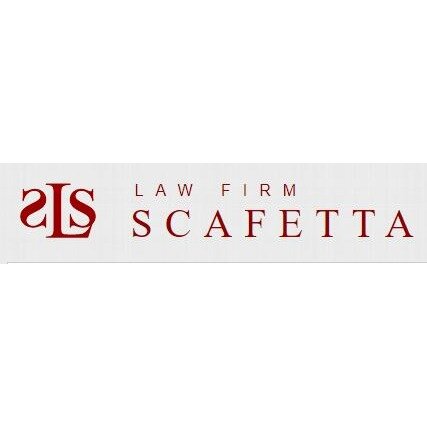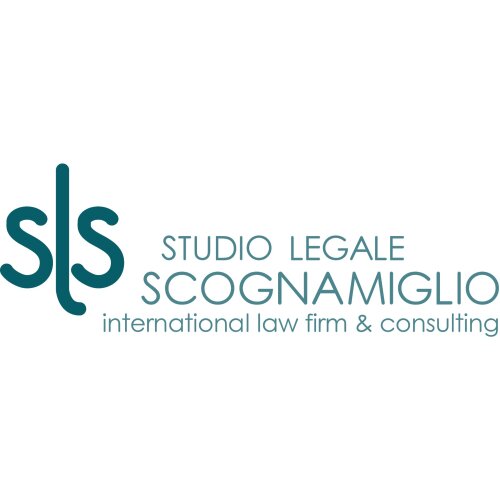Best Renewable & Alternative Energy Lawyers in Naples
Share your needs with us, get contacted by law firms.
Free. Takes 2 min.
List of the best lawyers in Naples, Italy
About Renewable & Alternative Energy Law in Naples, Italy
Renewable and alternative energy law in Naples, Italy, involves the legal framework, regulations, and policies that support the development, implementation, and use of sustainable energy sources such as solar, wind, geothermal, biomass, and hydropower. Naples, located in the Campania region, enjoys abundant sunlight and other natural resources, making it an attractive location for renewable energy projects. Italian and European Union laws encourage the adoption of alternative energy, with incentives for energy producers and consumers alike. However, strict planning, environmental, and zoning regulations apply, and navigating these laws often requires specialized legal knowledge.
Why You May Need a Lawyer
There are several scenarios in which someone might require the help of a lawyer when dealing with renewable and alternative energy matters in Naples:
- Understanding and applying for permits or authorizations for installing renewable energy systems
- Negotiating contracts for the sale, purchase, or leasing of land for energy projects
- Complying with local, regional, and national environmental and zoning regulations
- Securing incentives, grants, or government subsidies
- Dispute resolution regarding energy tariffs or grid connection
- Ensuring compliance with energy efficiency measures for residential or commercial properties
- Managing partnerships or joint ventures to develop or finance projects
- Addressing community or neighborhood opposition to proposed installations
- Handling intellectual property issues related to innovative energy technologies
- Managing liabilities in the event of environmental damage or accidents during project development
Local Laws Overview
Renewable and alternative energy in Naples is governed by a combination of national Italian laws, European directives, regional regulations, and local municipal guidelines. Here are key aspects to consider:
- Permitting and Authorizations: Installing solar panels, wind turbines, or other alternative energy systems often requires obtaining permits from municipal or regional authorities. The process can include environmental assessments, safety checks, and compliance with urban planning laws.
- Building Codes: Local construction codes may limit the placement, size, or type of renewable energy systems, especially in protected urban or historical zones common in Naples.
- Incentives and Subsidies: National and regional programs offer incentives and grants to promote the adoption of renewables. These programs have strict eligibility and reporting requirements.
- Connection to the Grid: Integrating with the national electricity grid is regulated by the Italian Energy Authority (ARERA) and local distributors, often requiring contracts and technical assessments.
- Environmental Protection: Environmental impact assessments are required for larger projects to ensure local ecosystems and landscapes are preserved.
- Zoning and Land Use: Not all land is eligible for energy installations, especially in protected areas or those with specific agricultural designation. Municipal plans detail where installations can occur.
- Waste Management: There are obligations for the safe disposal or recycling of decommissioned energy components such as photovoltaic panels and batteries.
Frequently Asked Questions
What types of renewable energy projects are most common in Naples?
Solar energy projects are the most common in Naples due to the region's high solar irradiation. Small wind and biomass projects are also present, while geothermal and hydropower are less prevalent in the urban area.
Do I need a permit to install solar panels on my home?
Generally, yes. Most installations require a permit from your local municipality, especially for rooftop panels. Some small-scale installations may be exempt, but specific conditions must be met.
Are there incentives for installing renewable energy systems in Naples?
Yes. National and regional governments offer various incentives such as tax credits, grants, and Conto Energia feed-in tariffs. Eligibility and application processes can be complex.
Can I sell excess electricity generated to the grid?
Yes, homeowners and businesses can sell excess electricity back to the grid under specific programs regulated by ARERA and local distributors. Registration and a technical connection agreement are required.
What environmental assessments are required for energy projects?
Larger projects typically require an Environmental Impact Assessment (VIA). Smaller residential installations may have simplified procedures or exemptions, depending on location and size.
Are there restrictions on renewable energy installations in historical areas?
Yes, structures in historical or protected zones face more restrictive regulations. Installations may be prohibited or require special permissions from heritage and landscape authorities.
Who is responsible for decommissioning and recycling old equipment?
Owners are generally responsible for proper disposal and recycling of equipment like panels and batteries, following waste management laws. Accredited facilities must be used.
How long does it take to obtain permits for a renewable energy installation?
Processing times depend on the type and size of the installation and the location. Simple residential solar installations may only take a few weeks, while larger projects can require several months.
What happens if there is a dispute with a neighbor over a renewable energy project?
Disputes may arise over visual impact, noise, or safety concerns. Local mediation services or legal action may be required to resolve these issues under civil or administrative law.
Can foreign investors participate in renewable energy projects in Naples?
Yes, foreign individuals and companies can invest in renewable energy projects in Naples under the same laws that apply to Italian entities, though they must comply with all local requirements.
Additional Resources
For more information or support, consider reaching out to the following resources and organizations related to renewable and alternative energy in Naples and Italy:
- Italian Ministry for the Environment and Energy Security (MASE)
- Italian Regulatory Authority for Energy, Networks and Environment (ARERA)
- Regional Energy Agency of Campania (Agenzia Regionale Energia Campania)
- Municipality of Naples Environment and Urban Planning Departments
- GSE (Gestore dei Servizi Energetici), the state body managing renewable energy incentives
- Italian Photovoltaic Association (Associazione Italiana Energia Fotovoltaica)
- Environmental non-governmental organizations active in the Campania region
Next Steps
If you need legal assistance concerning renewable or alternative energy in Naples, begin by identifying the specific issue you are facing, such as permits, contracts, or disputes. Gather any relevant documents, such as land titles, proposed project plans, previous correspondence with authorities, and any existing contracts or agreements. Consider consulting a lawyer who specializes in energy law or environmental law in the Campania region. Many law firms offer initial consultations to help determine the best course of action. Additionally, stay up-to-date with changes in local and national regulations, as the energy sector often evolves quickly due to technological and policy shifts. Finally, engage early with local authorities and energy agencies to clarify procedural requirements and maximize available incentives.
Lawzana helps you find the best lawyers and law firms in Naples through a curated and pre-screened list of qualified legal professionals. Our platform offers rankings and detailed profiles of attorneys and law firms, allowing you to compare based on practice areas, including Renewable & Alternative Energy, experience, and client feedback.
Each profile includes a description of the firm's areas of practice, client reviews, team members and partners, year of establishment, spoken languages, office locations, contact information, social media presence, and any published articles or resources. Most firms on our platform speak English and are experienced in both local and international legal matters.
Get a quote from top-rated law firms in Naples, Italy — quickly, securely, and without unnecessary hassle.
Disclaimer:
The information provided on this page is for general informational purposes only and does not constitute legal advice. While we strive to ensure the accuracy and relevance of the content, legal information may change over time, and interpretations of the law can vary. You should always consult with a qualified legal professional for advice specific to your situation.
We disclaim all liability for actions taken or not taken based on the content of this page. If you believe any information is incorrect or outdated, please contact us, and we will review and update it where appropriate.










